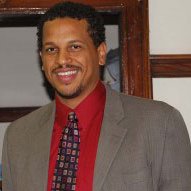
Teachers—and the culture in which they work—have the most significant impact on student achievement. Teachers must have a deep understanding of instruction; that is, they must (1) understand the principles that govern how the human mind integrates, processes, stores and masters new skills and information, and (2) be skilled in implementing instructional strategies that capitalize on those learning principles.
It is my responsibility to put the most highly skilled teachers in front of my students; to engage teachers in continuous professional learning of effective instructional practices; and to orchestrate and invest in a collaborative adult learning environment that gets groups of teachers working together with purpose and persistence--an environment that respects the infinite intellectual capacity of teachers to identity problems and to work collaboratively to solve them.
At my current school we are in year three of a six-to-eight-year effort to completely transform teaching and learning through a combination of directed professional education, collaborative-teacher directed learning communities focused on problem solving, and the capacity building to bring it all together. Data has a place in our work, but it does not drive our efforts, it informs them. Our efforts are driven by our love for our students, our respect for our profession, and the sense of responsibility and purpose that each of us experiences as we work with our students.
After just two-and-a-half years, our results have been impressive. Some of our achievement information is illustrated below.
Unfortunately, our politicians and their education appointees do not always have an appreciation for--or understanding of--the systems and resources it takes to develop and maintain high performing schools and school systems. As a result, I have engaged in advocacy for our city's public schools







